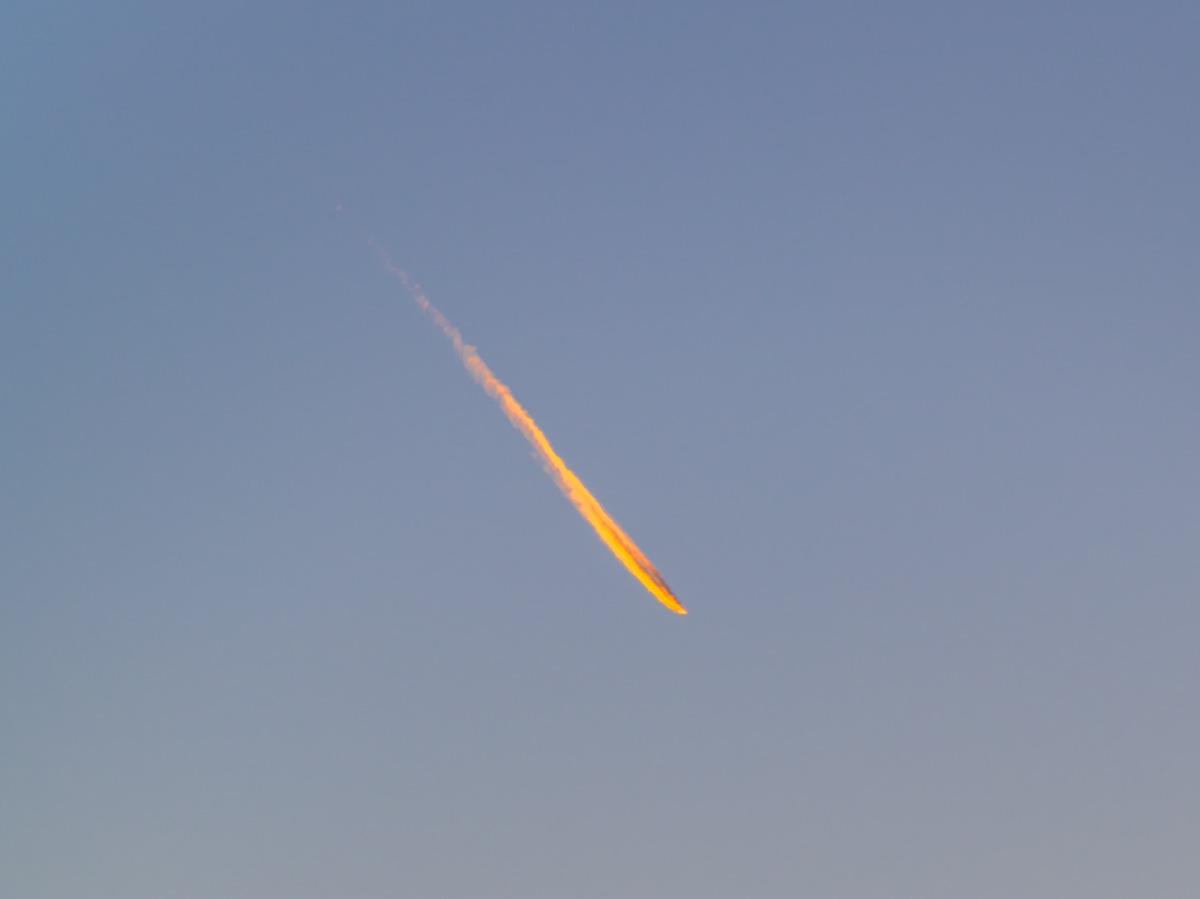
In an infrequent astronomical event, a French woman was hit by a meteorite while having coffee on the terrace with her friend. The incident occurred on July 6 when the woman, whose identity has not been revealed, was sitting on an outdoor terrace conversing with her friend in Alsace, eastern France. Suddenly, a mysterious pebble struck her in the ribs and caused her to experience a sharp shock. It was accompanied by a loud boom that left both women bewildered.
According to a report in the local newspaper Derniere Nouvelles d’Alsace, the space rock bounced off the roof of her house before striking her. It then rolled across her body, landing on her chest and causing her to feel a slight bruising. The woman then took the strange rock to a roofer, who told her it did not resemble cement and might be a meteorite. Later, she had the rock examined by geologist Thierry Rebmann who confirmed it appeared from outer space. The rock contained a mixture of iron and silicon, and its total mass is estimated at 4 ounces. Rebmann pointed out that although almost 50 tons of meteoritic material falls to Earth daily, it is rare for one to impact a person directly. He added that such incidents are especially unusual in temperate climate zones like France, where meteorites only occur five times a century on average.
It is a known fact that rocks from space can fall to the Earth in any area, but it is pretty challenging to find them, as they are usually buried under layers of Earth. However, if the meteorite is small enough and close to the ground, it can be easily spotted by a person with good eyesight.
There have been many cases of people claiming to be hit by meteorites throughout history, but until now, no concrete evidence has ever been provided to confirm these claims. The first confirmed instance of a meteorite directly hitting a human was reported in 1954 when Ann Hodges of Sylacauga, Alabama, was struck by an 8-pound stony meteorite that crashed through her roof, leaving her with severe bruising.
The woman’s story is being hailed by scientists who say it proves that the phenomenon of a meteorite hitting the Earth does happen, although it is scarce. It is also a good reminder that people must always seek expert opinion before making wild claims about being hit by a meteorite.
According to NASA, nearly 50 tons of meteoric material falls on the Earth each day, but most disintegrate during atmospheric entry, and most of this material is absorbed into the oceans. Only about 10 percent of all meteorites reach the ground in some form, most smaller than marble. It is estimated that about 5 pounds of the total amount survives to reach land and can be identified as such.
